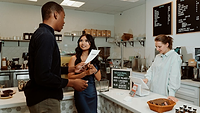Yelp Beta Tests Poor Restaurant Inspection Alerts

Last week, the popular review website Yelp began beta testing a food safety alert for restaurants in the San Francisco area that have received poor inspection scores.
The pop-up box reads:
Consumer Alert: Poor Food Safety Score!
Did you know that local officials inspect food service facilities to improve food safety?
Following a recent inspection, this facility received a food safety rating that is in the bottom 5% locally, and is categorized by inspectors as “poor.”
Being in the consumer protection business, we care a lot about your safety and will display this alert for six months or until we receive a significantly improved food safety rating for this business.”
To acknowledge that they have seen this alert, Yelp users are then prompted to click a button that reads, “Got it, thanks!”
"It’s our strong belief that this is something consumers have a right to see," says Luther Lowe, Yelp's head of public policy. He also points out that restaurant inspection scores are already available to the public online via local health department records.
Now that San Francisco’s worst performing restaurants have been put on blast, only time will tell how Yelp’s experiment will ultimately affect consumer behavior. Will people stop eating at these establishments--even ones that have years of glowing reviews from satisfied customers? Will the restaurants finally clean up their act now that they’re on front street? There’s also a third possible outcome--what if Yelp’s alert turns off consumers so much that it drives some restaurants to close for good?
But Yelp’s goal is the exact opposite--to get businesses to improve their food safety scores.
While the National Restaurant Association (NRA) agrees with providing this information to consumers, the NRA does worry about Yelp’s ability to keep up. If a restaurant quickly resolves their food safety issues, how soon will Yelp take down the alert? Days later? Weeks? Months?
Yelp’s experiment is also expected to help both regulators and consumers nationwide in the coming years. Because Yelp users are not afraid to voice their opinions, using words like “dirty” and “moldy” in their reviews, there is a strong possibility that monitoring this type of feedback could tell local health departments where they should be focusing their inspection efforts. This is already being tested by Yelp in Boston.
Sign up for Food Safety Magazine’s bi-weekly emails!
Looking for a reprint of this article?
From high-res PDFs to custom plaques, order your copy today!





